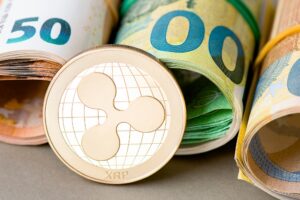Investing in ETFs: A Beginner’s Guide to Exchange-Traded Funds
Exchange-Traded Funds (ETFs) have gained significant popularity among both novice and seasoned investors. As financial markets evolve, understanding these instruments is crucial for effective portfolio management and strategic asset allocation.
**What Are ETFs?**
ETFs are investment funds that are traded on stock exchanges, much like individual stocks. They hold a collection of assets such as stocks, bonds, or commodities, and they offer investors an easy way to diversify their portfolios through a single investment. ETFs are designed to track the performance of a specific index, sector, or commodity, providing investors with exposure to various market segments without the need to select individual securities.
**Market Impact**
The global ETF market has experienced remarkable growth, with assets under management surpassing $10 trillion by the end of 2022, according to data from the Investment Company Institute. This rapid growth is attributed to several factors, including the rise of low-cost investment options and the increasing demand for passive investing strategies. As of 2023, the trend continues, with analysts projecting that the ETF market could exceed $15 trillion by 2025. This growth highlights the growing acceptance of ETFs among institutional investors and retail traders alike.
**Advantages of ETFs**
One of the primary advantages of investing in ETFs is their **cost-effectiveness**. Since many ETFs are passively managed, they typically have lower expense ratios compared to actively managed funds. This lower cost can lead to higher long-term returns for investors. Furthermore, ETFs offer liquidity, as they can be bought and sold throughout the trading day at market prices, allowing investors to take advantage of price fluctuations.
ETFs also provide diversification benefits. A single ETF can offer exposure to hundreds or even thousands of underlying securities, reducing the risk associated with investing in individual stocks. According to a report by Morningstar, investors holding diversified portfolios tend to experience less volatility over time, making ETFs an attractive option for risk-averse investors.
**Expert Opinion**
Financial experts recommend that new investors consider their investment goals and risk tolerance before diving into the ETF market. “ETFs can be an excellent choice for beginners due to their simplicity and inherent diversification,” says Sarah Thompson, a financial advisor at Wealth Strategies Group. “However, investors should remain mindful of tracking errors and management fees, which can eat into returns over time.”
Additionally, experts emphasize the importance of choosing the right ETF. With thousands of options available, investors should evaluate factors such as the **fund’s performance history**, the structure of the ETF (traditional vs. leveraged), and the underlying assets. Using tools like ETF screeners can help investors filter through the vast array of available funds based on their specific investment criteria.
**Background**
ETFs first appeared in the early 1990s, with the launch of the S&P 500 SPDR ETF in 1993. Since then, the industry has expanded significantly, with innovations such as *thematic ETFs*, which focus on specific trends or sectors like renewable energy or biotechnology, gaining traction. Moreover, the rise of **smart beta ETFs**, which combine elements of passive and active investing, has further diversified the offerings available to investors.
The COVID-19 pandemic accelerated the shift toward online trading and investment, with many new retail investors entering the market. As a result, ETFs have benefited from increased interest, with trading volumes reaching unprecedented levels during market volatility. This trend indicates a broader acceptance of ETFs as a reliable investment vehicle.
**What’s Next?**
Looking forward, the ETF landscape is expected to evolve with continued innovation and product development. Market analysts suggest that **sustainability-focused ETFs** will likely play a significant role in shaping future investment strategies, as more investors seek to align their portfolios with their values. Additionally, advancements in technology and data analytics may lead to the emergence of more sophisticated ETF products that cater to the evolving needs of investors.
As the ETF market grows, education and awareness will remain pivotal. For beginners, taking the time to understand the mechanics of ETFs and their implications for portfolio management will be vital in navigating this dynamic investment landscape. By leveraging resources and seeking professional advice, novice investors can build a solid foundation for their financial future through informed ETF investing.
Whether you are looking to start your investment journey or seeking to enhance your existing portfolio, understanding the fundamentals of ETFs is essential for capitalizing on their potential benefits.







